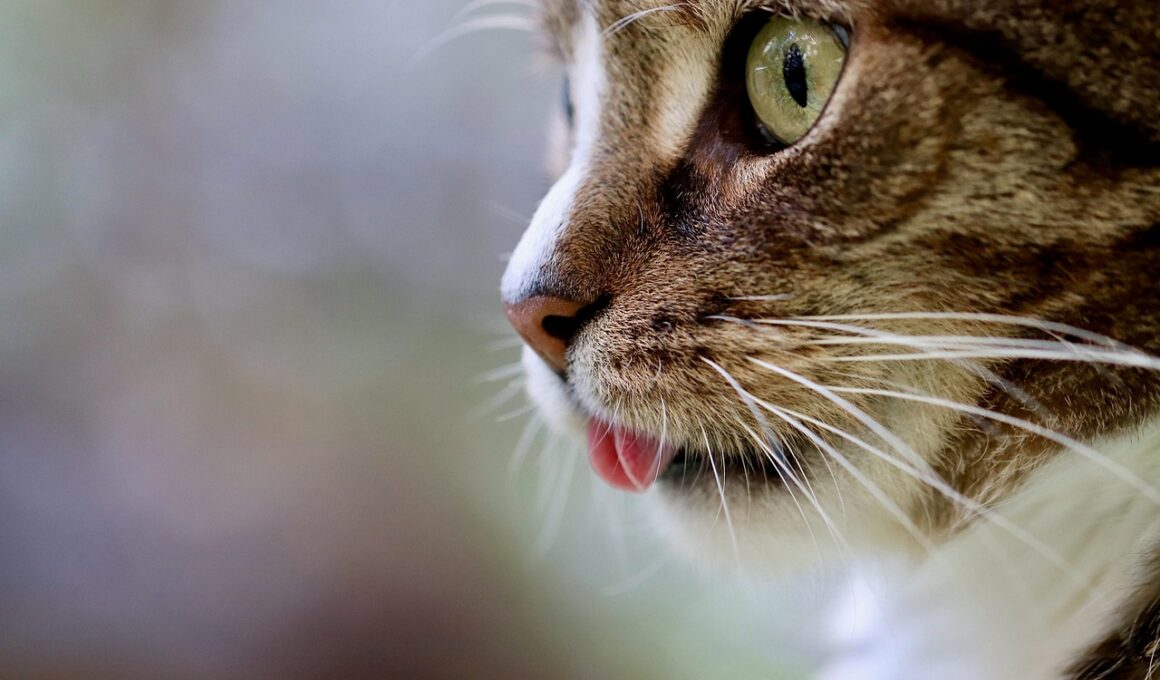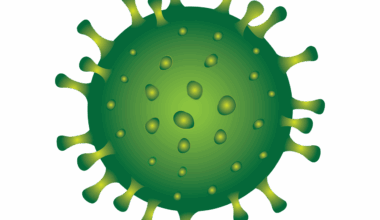Veterinarian Advice: Vitamins Your Cat Needs Daily
Ensuring your cat receives the right vitamins daily is essential for their health and wellbeing. Veterinarians often recommend a balanced diet, coupled with vitamin supplements to support your cat’s overall health. Key vitamins that contribute to various bodily functions include Vitamin A, Vitamin D, Vitamin E, and B Vitamin complex. Each plays a role, from promoting healthy skin to supporting cognitive functions. For example, Vitamin A is crucial for vision, while Vitamin D aids in calcium absorption, essential for bone growth and strength. For optimal health, it’s crucial to consult a veterinarian to establish the appropriate vitamin regimen for your cat. They can determine if your cat requires additional vitamins beyond what is found in their food. Furthermore, cat food often comes fortified with essential vitamins. However, some cats may benefit from specific supplements depending on their diet, age, or health conditions. Always provide these supplements alongside recommendations from your veterinarian. Regular check-ups help ensure that your cat’s vitamin levels remain balanced, which can significantly improve their quality of life. Investing time and care now leads to a happier, healthier cat in your home, maximizing their lifespan.
Another important vitamin that should be included in your cat’s diet is Vitamin E. This fat-soluble vitamin acts as an antioxidant and is vital for maintaining a healthy immune system. Vitamin E helps neutralize free radicals that may cause cellular damage, promoting overall health in your cat. Cats typically receive sufficient Vitamin E from their diet, but sometimes it may be necessary to supplement it, especially in cases of illness or specific dietary restrictions. Omega-3 fatty acids are also becoming popular among cat owners who wish to enhance their cat’s coat and skin condition. When combined with Vitamin E, these fatty acids can work together to maintain healthy, shiny fur. Furthermore, a deficiency in Vitamin E can lead to issues related to heart and skin health. While a well-balanced diet should provide adequate quantities of important vitamins, some cats may require additional supplementation. Always ensure any chosen supplements meet your veterinarian’s approval to avoid overdosing potential toxicity. Regularly assessing your cat’s overall health with your veterinarian helps tailor nutritional plans and supplementation to their unique needs, ensuring your feline friend remains active and energetic.
The Importance of B Vitamins for Cats
B Vitamins, including B1, B2, B6, and B12, are essential for cat health. Each of these vitamins plays a significant role in metabolic processes, providing support for muscle and nerve functions. B Vitamins help convert food into energy, which is crucial for your active feline. Vitamin B1, also known as Thiamine, is crucial for a healthy nervous system and proper brain function. Meanwhile, Vitamin B12 is vital for maintaining a cat’s energy levels and red blood cell production. Deficiencies in B Vitamins can result in various health issues such as lethargy, loss of appetite, and cognitive decline. There are cat food brands specifically formulated with B Vitamins, ensuring they receive adequate nutrients daily. Consult your veterinarian if you suspect a deficiency or if your cat exhibits symptoms of a vitamin deficiency. Supplementing your cat’s diet can help avoid these problems, keeping them vibrant and healthy. Many cat lovers find it helpful to invest in nutrient-rich food options and supplements according to their vet’s recommendations. Properly addressing B Vitamin needs can dramatically improve mood, energy, and overall health.
Vitamin C, though generally not considered essential for cats, can offer benefits in certain situations. While cats typically produce sufficient amounts of Vitamin C on their own, those under stress or ill may exhibit the need for extra supplementation. This vitamin plays an important role in collagen production, crucial for maintaining healthy skin and tissue repair. Additionally, it supports the immune system, providing that extra boost which is helpful during recovery from illnesses. Some veterinarians recommend vitamin C supplements for older cats, especially those with joint disease or arthritis, as it aids in reducing inflammation. However, consult your veterinarian before introducing any vitamin C supplements to your cat’s diet, as excessive amounts can lead to digestive issues. A well-balanced diet containing adequate nutrients usually meets your cat’s needs without the risk of overdose. Monitoring your cat’s health through routine veterinary check-ups is essential for ensuring they stay healthy and receive the nutrients they need. Regular discussions with your vet can help tailor a course of supplementation based on your cat’s unique needs.
Vitamin A: Its Crucial Role in Cat Health
Vitamin A is a vital component needed for cats to thrive. It plays a critical role in maintaining healthy vision, essential for both night and day activities. This vitamin helps provide an essential component of vision called rhodopsin, found in the retina. Cat food is often fortified with the necessary levels of Vitamin A, but it is vital to monitor overall intake. Inadequate amounts can lead to night blindness, dry skin, and a weakened immune response. Conversely, too much Vitamin A can result in hypervitaminosis A, which leads to serious health complications. The best sources of Vitamin A for cats are animal-based proteins such as liver and fish, which contain retinol that the cat’s body can utilize easily. Most commercially available cat foods include these sources, so it’s essential to choose high-quality brands. Regular, well-rounded diets can help ensure that your cat obtains the required nutrients, including Vitamin A. Providing additional supplementation should come from professional guidance to ensure that your furry friend stays healthy and active without the risk of overdose.
Minerals are equally important for your cat’s health, working alongside vitamins to support proper bodily functions. Key minerals like calcium, phosphorus, and magnesium must be included in their diet. These minerals contribute significantly to bone health and metabolic processes, ensuring your cat remains strong and agile. Calcium is particularly vital for pregnancy and lactation, affecting both maternal health and kitten development. Phosphorus works in tandem with calcium to build strong bones and teeth. Inadequate intake of these essential minerals can lead to various health issues, including skeletal disorders. Magnesium supports over three hundred biochemical reactions in the body, affecting muscle function and energy production. It’s important to choose cat food that is well-balanced in vitamins and minerals, specifically formulated to meet the unique requirements of felines. Consulting with a veterinarian to determine whether your cat may benefit from mineral supplements can help avoid potential deficiencies. Regular veterinary visits to assess health can help you spot any necessary changes in diet, ensuring your cat receives all needed nutrients to maintain their health and thrive.
Conclusion: Vital Vitamins for Your Cat
In conclusion, ensuring your cat receives the necessary vitamins and minerals daily lays the foundation for a long, healthy, and happy life. A well-balanced diet rich in animal proteins typically meets a cat’s nutritional needs, but veterinary guidance is essential to customize supplementation appropriately. Regular check-ups allow an experienced veterinarian to assess your cat’s specific requirements, helping you identify possible deficiencies early on. Vitamin A, B Vitamins, Vitamin C, D, and E all contribute significantly to your feline’s vitality, while essential minerals ensure strong bones and overall well-being. Investing in high-quality cat food supplemented with vitamins can help contribute to the health and energy levels of your animal companion. Always tailor your approach based on your cat’s individual needs, age, lifestyle, and any existing health conditions. Simplifying your cat’s nutrition should not be overwhelming; focus on understanding your friend’s requirements and maintain open communication with your vet. With the right approach, including proper vitamins and minerals, you can enhance your cat’s life, making their days filled with joy, energy, and enthusiasm, leading to a fulfilling companionship.
Finally, always remember that every cat is unique in their specific dietary requirements. Their differing activity levels, life stages, and health needs should guide your choices regarding vitamins and supplements. Frequent observation of your cat’s health condition can assist you in determining if dietary changes are required. Monitor your cat’s energy levels, weight, and coat condition—these may all signal their overall health status. Your devoted attention can lead to early identification of potential deficiencies, giving you and your veterinarian the opportunity to intervene. The best investment you can make in your cat’s well-being is a well-informed and thoughtful approach to their dietary needs. Consult with your veterinarian to create a plan that suits your individual pet. By adhering to a proactive approach in recognizing health needs and implementing changes, you will create a supporting environment conducive to your cat’s thriving. Understanding their nutritional requirements enables you to foster a warm bond through responsible pet ownership. Create a tailored care plan based on expert advice that ensures your cat maintains excellent health through balanced nutrition and dedicated care.


